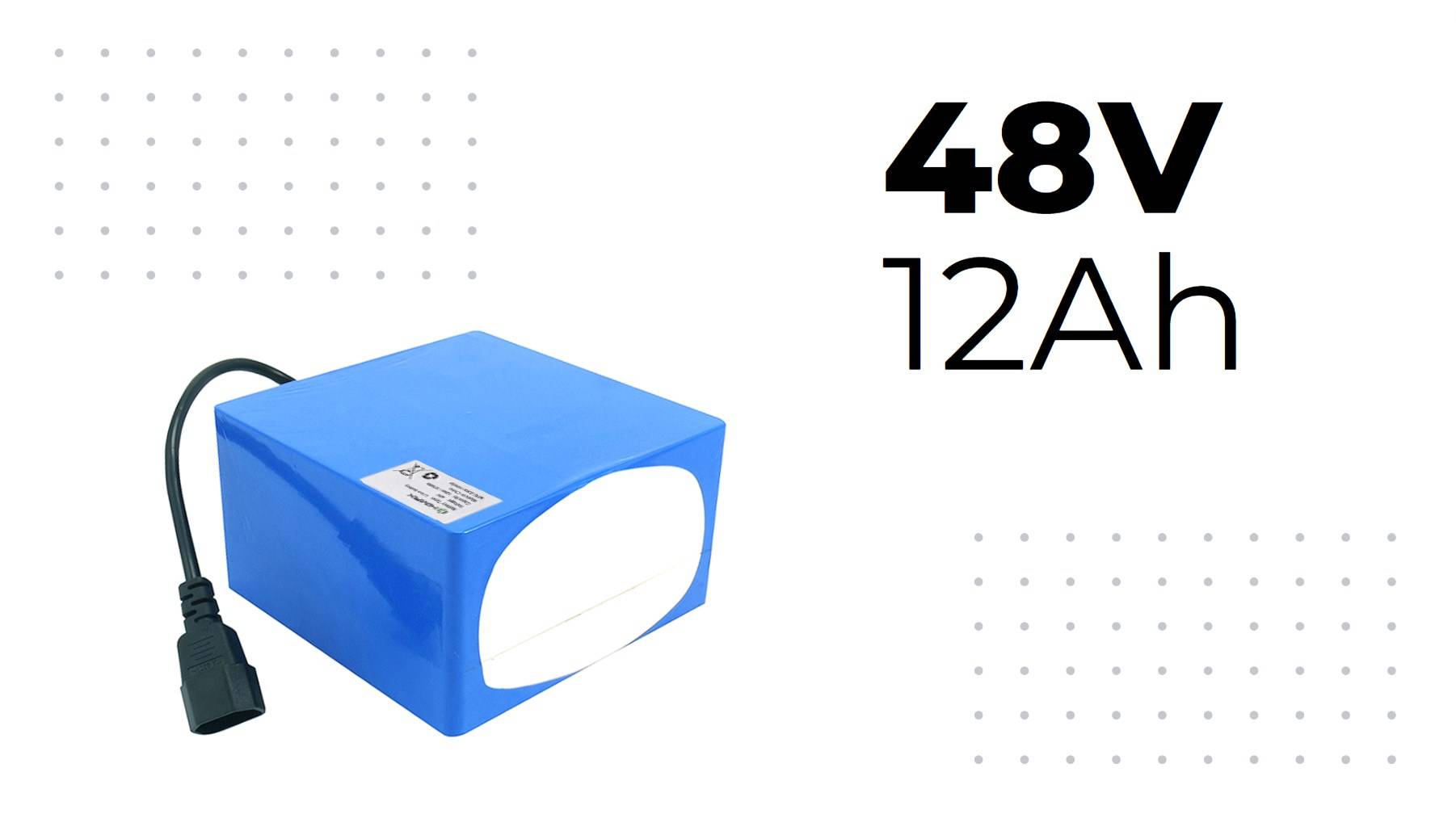
Blog
What Makes the 48V 12Ah Lithium Battery Compact and Efficient?

The 48V 12Ah lithium battery is a compact and efficient energy storage solution that excels in various applications due to its lightweight design and high energy density. This battery type is ideal for powering electric bikes, solar energy systems, and backup power solutions, making it a versatile choice for modern energy needs.
How Do 48V 12Ah Lithium Batteries Work?
The operation of a 48V 12Ah lithium battery involves lithium-ion cells that store and release energy through electrochemical reactions. This configuration allows for efficient energy transfer while maintaining a compact form factor.
What Are the Advantages of Using 48V 12Ah Lithium Batteries?
The benefits of utilizing a 48V 12Ah lithium battery include:
- Compact Size: Its lightweight design makes it easy to integrate into various devices without adding significant weight.
- High Energy Density: These batteries can store more energy in a smaller space compared to traditional lead-acid batteries, resulting in longer operational times.
- Low Self-Discharge Rate: They maintain their charge longer when not in use, making them ideal for intermittent applications.
Chart: Comparison of Energy Density
| Battery Type | Energy Density (Wh/kg) | Cycle Life (Approx.) |
|---|---|---|
| Lead-Acid | ~30-50 | ~500 |
| Nickel-Cadmium | ~60-120 | ~1000 |
| Lithium-Ion | ~150-200 | ~2000 |
What Are the Key Specifications and Features?
Key specifications of the 48V 12Ah lithium battery include:
- Nominal Voltage: 48 volts
- Capacity: 12 ampere-hours
- Cycle Life: Typically over 1000 cycles at an optimal depth of discharge (DOD)
- Weight: Approximately between 3 to 4 kg depending on the specific model
What Applications Utilize 48V 12Ah Lithium Batteries?
These batteries are versatile and find applications in:
- Electric Bikes: Providing reliable power for eco-friendly transportation.
- Solar Energy Storage Systems: Ensuring consistent power supply during periods without sunlight.
- Backup Power Solutions: Offering uninterrupted power during outages for critical devices.
How Do 48V 12Ah Batteries Compare with Other Battery Types?
When compared to traditional lead-acid batteries, the advantages of lithium batteries include:
- Longer Lifespan: They typically last longer due to their higher cycle life.
- Faster Charging Times: Lithium batteries can be charged more quickly than lead-acid counterparts.
- Reduced Maintenance Needs: They require less upkeep compared to lead-acid batteries.
What Are the Charging and Maintenance Guidelines?
Proper charging and maintenance practices include:
- Use Compatible Chargers: Always use chargers designed specifically for lithium batteries to avoid damage.
- Avoid Extreme Temperatures: Store and operate within recommended temperature ranges (usually between -20°C to +60°C).
- Regular Monitoring: Check battery health periodically to ensure optimal performance.
What Safety Features Are Included in 48V 12Ah Lithium Batteries?
Safety features typically integrated into these batteries include:
- Battery Management System (BMS): Protects against overcharging, deep discharging, short circuits, and overheating.
- Thermal Protection: Prevents overheating during operation.
What Is the Environmental Impact of Lithium Batteries?
Lithium batteries have a lower environmental impact compared to lead-acid batteries due to their longer lifespan and higher efficiency, although proper recycling methods are essential to mitigate potential pollution from discarded batteries.
How Do Temperature Variations Affect Battery Performance?
Temperature extremes can significantly impact performance; cold temperatures may reduce capacity while excessive heat can accelerate degradation.
What Are the Best Practices for Storing Lithium Batteries?
Best practices for storage include keeping them at moderate temperatures, ensuring they are charged to about 50% before long-term storage, and regularly checking their condition.Expert Views
“Adopting lithium technology like the 48V 12Ah battery not only enhances performance but also supports sustainability efforts,” notes Dr. Lisa Thompson, an expert in renewable energy technologies. “These advancements pave the way for more efficient energy solutions.”
FAQ Section
- What is the lifespan of a typical 48V 12Ah lithium battery?
With proper care, these batteries can last over 1000 cycles. - Can I use this battery in solar energy systems?
Yes, they are excellent for storing solar energy. - What happens if I overcharge my lithium battery?
Overcharging can lead to overheating and potential damage or failure.



